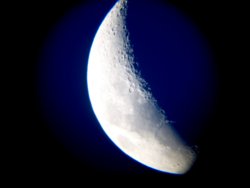 An American umbrella systematic review assessing the benefits of acupuncture for menopause symptoms, has concluded that evidence from randomised controlled trials supports its use. Data was taken from three systematic reviews covering over 1100 women, and from four randomised controlled trials covering 700 women. There were statistically significant differences associated with acupuncture treatment, either adjunctive or stand-alone, compared with no acupuncture, for reducing vasomotor symptoms eg hot flushes and night sweats, and improving health-related quality of life. Follow-up times varied but some studies demonstrated reductions in hot flush frequency lasting 12 months or more. Differences were smaller or not statistically significant when acupuncture was compared with sham acupuncture.
An American umbrella systematic review assessing the benefits of acupuncture for menopause symptoms, has concluded that evidence from randomised controlled trials supports its use. Data was taken from three systematic reviews covering over 1100 women, and from four randomised controlled trials covering 700 women. There were statistically significant differences associated with acupuncture treatment, either adjunctive or stand-alone, compared with no acupuncture, for reducing vasomotor symptoms eg hot flushes and night sweats, and improving health-related quality of life. Follow-up times varied but some studies demonstrated reductions in hot flush frequency lasting 12 months or more. Differences were smaller or not statistically significant when acupuncture was compared with sham acupuncture.
The authors conclude that the evidence supports the use of acupuncture to treat menopausal vasomotor symptoms, although the clinical benefits may be partly due to non-specific effects.
(Management of Menopause Symptoms with Acupuncture: An Umbrella Systematic Review & Meta-Analysis. Journal of Alternative & Complementary Medicine, April 2018.)

 A new study by Brazilian researchers suggests an association between adherence to the Mediterranean diet, and bone density and muscle mass in post-menopausal women. This diet involves a high intake of fruit, vegetables, grains, potatoes, olive oil and seeds, moderately high fish intake, plus low saturated fat, dairy and red meat consumption, and regular but moderate intake of red wine. The Mediterranean diet has previously been linked to a lower risk of heart disease, diabetes and cancer.
A new study by Brazilian researchers suggests an association between adherence to the Mediterranean diet, and bone density and muscle mass in post-menopausal women. This diet involves a high intake of fruit, vegetables, grains, potatoes, olive oil and seeds, moderately high fish intake, plus low saturated fat, dairy and red meat consumption, and regular but moderate intake of red wine. The Mediterranean diet has previously been linked to a lower risk of heart disease, diabetes and cancer. Researchers in China have found that acupuncture can contribute to clinically relevant improvements in perimenopausal insomnia, both objectively and subjectively. A total of 76 such patients were randomised to receive either ten sessions of acupuncture or sham needling at the same points, over a period of three weeks. After treatment, sleep quality improved by 8.0 points in the acupuncture group versus 1.3 points in the sham group. Insomnia severity scores reduced by 11.3 points in the acupuncture group, and 2.9 points in the sham group.
Researchers in China have found that acupuncture can contribute to clinically relevant improvements in perimenopausal insomnia, both objectively and subjectively. A total of 76 such patients were randomised to receive either ten sessions of acupuncture or sham needling at the same points, over a period of three weeks. After treatment, sleep quality improved by 8.0 points in the acupuncture group versus 1.3 points in the sham group. Insomnia severity scores reduced by 11.3 points in the acupuncture group, and 2.9 points in the sham group. 